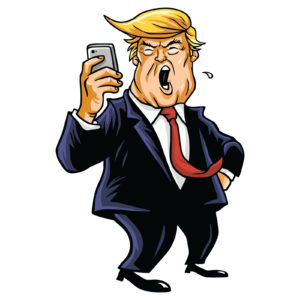Time and again President-elect Donald J. Trump has disparaged the U.S. Intelligence Community for concluding Russia was responsible for the 2016 election “hack and leak” campaign. Trump has attacked the Intelligence Community’s investigation, competence and motivations. Even after full, classified briefings from leaders of the intelligence agencies, Trump still refused to acknowledge Russia’s meddling. He apparently finds Vladimir Putin and Julian Assange more convincing than U.S. intelligence officials.
This spectacle endangers U.S. security and American leadership.
Rival states and terrorists pose threats to the United States that require the White House and the Intelligence Community to work together. Good intelligence is imperative for presidents to devise national security and foreign policy strategies.
As the George W. Bush and Barack Obama administrations demonstrated, terrorism, accelerating geopolitical competition and the impact of new technologies heighten the role intelligence plays in strategic thinking and policy execution.
On the eve of his inauguration, Trump has undermined prospects for effective collaboration between the White House and the Intelligence Community. The president-elect has provided only sound bites concerning the national security and foreign policy strategies he will pursue, while he has dissed the Intelligence Community on an issue of profound importance for the republic. We know neither where the country is headed strategically nor whether President Trump will value the Intelligence Community’s input on dangers the United States and our allies face.
This reality makes Trump’s desire to reform the Intelligence Community all the more disconcerting. A new administration should evaluate whether the U.S. government is gathering intelligence in optimal ways. However, hanging over any reform is Trump’s hostility to intelligence findings inconsistent with his worldview.
With the election hacks and other issues, the president-elect has demonstrated a disdain for facts, which bodes ill for the role the Intelligence Community should play in U.S. national security and foreign policy. No amount of renovation of the intelligence bureaucracy will protect the United States from a commander-in-chief unwilling to acknowledge what Founding Father John Adams called the stubbornness of facts.
The tensions between Trump’s transition and congressional leaders about the election hacks foreshadow conflicts over intelligence between the executive and legislative branches after Trump’s inauguration. Clashes between the political branches form part of the “checks and balances” of our constitutional system. However, fights between Congress and the White House too often become partisan affairs, which divides the body politic, delays responses to risks the nation faces, and provides opportunities for adversaries to harm our interests.
As the director of National Intelligence indicated in congressional hearings, the spat between the president-elect and the Intelligence Community is generating concerns among U.S. allies. Even with all its intelligence capabilities, the U.S. government needs to cooperate with other countries on intelligence in order to address security threats.
Trump’s handling of the election hacking does nothing to demonstrate he understands the need for American leadership in intelligence cooperation. European countries are worried about Russia’s behavior, but, when Trump cannot bring himself to recognize Russian machinations against American democracy, European confidence in U.S. leadership is shaken.
Trump’s intransigence means European countries facing potential Russian interference in their elections cannot rely on the United States for support. Recognizing that Russia is targeting European elections would undermine Trump’s refusal to acknowledge the Intelligence Community’s findings about what happened in the United States. Trump’s stance compromises the solidarity of the trans-Atlantic community of democracies and prevents it from facing a common threat together.
For our adversaries, the bad blood between the president-elect and the Intelligence Community is geopolitical manna from heaven. It portends disarray in one of the most formidable instruments of U.S. power and influence at a moment when many countries fear the United States is becoming more isolationist, nationalistic, and unpredictable. The election hack episode might prove as damaging to the Intelligence Community as Edward Snowden’s leaks — both self-inflicted wounds benefiting countries with ambitions at cross-purposes with American interests and ideals.
In refusing to accept the Intelligence Community’s findings, Trump seeks to prevent the election hacking from tainting his electoral victory. In doing so, he has damaged his credibility as a leader, undermined American power and influence, and turned his back on American principles. He is proving a greater threat to the legitimacy of his presidency than acknowledgement of the Russian hacking would ever have been.

